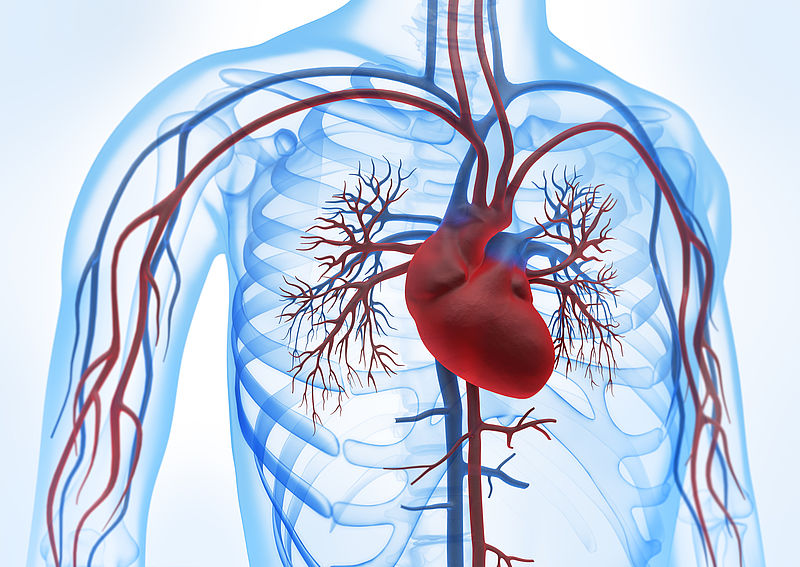Those who come to the hospital with chest pain, a feeling of tightness, and shortness of breath are often first examined with a cardiac catheter. Coronary angiography allows doctors to determine whether the large coronary vessels are blocked and dilate them. In about 40 percent of patients, special tests during the catheter examination reveal that the heart's small vessels are not permeable, which is what causes the symptoms.
Physicians can treat such microconstrictions with beta-blockers and calcium channel antagonists - and sometimes not at all. There is a lack of precise scientific data on which of the two agents should be used when. "This is a major problem because although an impaired microcirculation does not threaten a heart attack, the symptoms, such as trepidation and crushing chest pain, are very distressing for patients. If left untreated, serious secondary damage such as heart failure can develop," says Professor Ulf Landmesser of the Charité, who is leading the EXAMINE-CAD-DZHK22 study together with PD Dr. Barbara Stähli.
Impaired function or spasms?
The fact that the small heart vessels are not sufficiently permeable may be due to the inner vessel wall's disturbed function or spasming vessels. In the DZHK study, the Berlin researchers, together with five other DZHK centres, are investigating which of the two drugs is best suited for which patients. Patients will be divided into two groups using coronary physiology tests. "We assume that patients with spasms of the small blood vessels benefit from the calcium channel antagonists and that beta-blockers help better with impaired vascular function," Landmesser said.
Both subgroups of patients receive either the beta-blocker or the calcium channel antagonist in a staggered fashion. The researchers determine how successful the treatments are with questionnaires about patients' quality of life and symptoms. Landmesser and his colleagues hope their study will close a significant knowledge gap and pave the way for more extensive clinical trials to translate the findings into treatment guidelines quickly.
Study title: First prospective randomized trial to examine a differential therapeutic response in symptomatic patients with non-obstructive coronary artery disease after coronary physiological testing EXAMINE-CAD-DZHK22
Principal Investigators: Professor Dr. Ulf Landmesser, Director of the Medical Clinic for Cardiology, Charité - Universitätsmedizin Berlin, ulf.landmesser(at)charite.de
PD Dr. Barbara Stähli, Senior Physician, Medical Clinic for Cardiology, Charite'- Universitätsmedizin Berlin, barbara-elisabeth.staehli(at)charite.de
Contact: Christine Vollgraf, Press and Public Relations, German Center for Cardiovascular Research (DZHK), Tel: 030 3465 529 02, presse(at)dzhk.de
Study investigates which drugs help with circulatory disorders of small heart vessels (Study EXAMINE-CAD-DZHK22)


